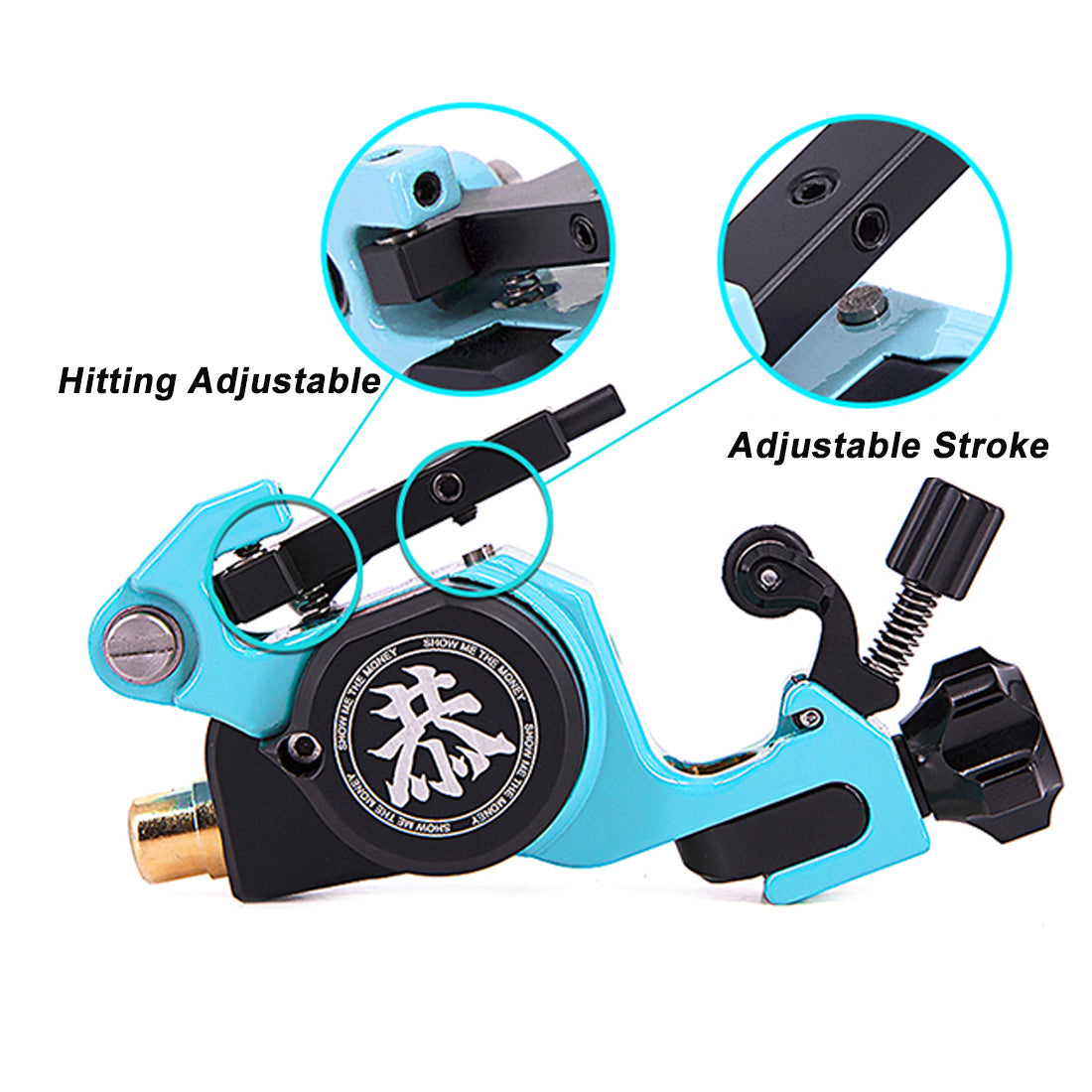All about Rotary Tattoo Machines
Body
Rotary Tattoo Machines are the first devices to use rotary technology, invented by Samuel O'Reilly and improved over time by tattoo artists. An electric motor drives the needles in rotary machines. Regardless of skill level, Best Rotary Tattoo Machines are generally simple, even for unskilled masters. Best Rotary Tattoo Machine has needles that move significantly faster than coil tattoo machines and have extremely uniform movements for laying down color. As a result, smaller needle groupings offer the best results when using rotary machines.

Tattoo Cartridge is single-use. We can throw them away after tattooing. Standard needles also should once, but they typically allow more ink and buildup to accumulate in the grip of your tattoo machine. With an autoclave sterilizer machine, a standard needle will require additional cleaning. We can bypass the arduous cleaning process with cartridges and switch your configuration quickly and conveniently. Tubes, tips, grips, and needles are all used in tattoo machines. Cartridges include built-in tips, ensuring that we always use the same size needle for the job.
What Exactly Is the Best Rotary Tattoo Pen?
Because Best Rotary Tattoo Pen is essentially a rotary tattoo machine, it is quieter and lighter than a coil tattoo machine. Clients generally believe they are minor discomfort because of its slower performance and lightweight design.
The Tattoo Needle repeatedly pricks the skin, drawing the ink clinging to it down the dermis.Tattoo Cartridge Needles are unique needles that specific machines can only use. For example,Cheyenne Hawk Rotary. Instead of standard needle setups with upsides, these machines solely employ cartridges.
Types of Tattoo Needles
- Needles for Magnum shaders
Magnum shaders are the recommended grouping or needle type for almost all shading tasks. Magnums are ideal for significant color packing and shading areas since they retain and distribute a lot of ink. Fewer passes are required over an area, resulting in less skin harm.
- Needles for Flat Shaders
Since their formation, these needles have been utilized for lining because they can deliver more ink to the skin. Larger flat needles are used for color fills and shading since they provide more ink in one pass. Flat needles work well for delicate shading in geometric patterns and some mandalas. Semi-permanent makeup also uses flat shader needles.
- Magnum Shader needles with a curved shape
Curved magnum shaders, also called soft edge magnums, soft magnums, and round magnums, function similarly to straight magnum shaders except that the pins arrange to arch at the center. The needle's edges travel more smoothly down the skin, allowing for better ink dissemination and a more consistent line.
- Magnum Shader needles, double stacked
It is helpful for any intricate shading or colorwork that requires a magnum with numerous pins but is not as widely spaced.
- Needles for round liners
The line thickness defines the number of round liners we select (for example, 01 extremely fine, 14 very thick) and the thickness/gauge of each pin (see Tattoo Needle Sizes below). Lining needles dip in ink will only let a small amount of ink escape, which may rub into the skin.










Comments